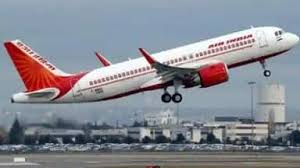Feature
US weigh banning laptops, electronic gadgets on all international flight

Washington: The United States President Donald Trump’s administration is considering taking strict step in regards of banning laptops from the passenger cabins of all international flights to and from the US, as told by Homeland Security Secretary John Kelly.
Kelly, a retired general, was asked by media on Sunday if he would expand an existing ban to cover laptops on all international flights into and out of the US, according to media report.
He added such a move would dramatically expand the ban, announced in March that affects about 50 flights per day from 10 cities, mostly in the Middle East.
The ban prevents travelers from bringing laptops, tablets and certain other devices on board in carry-on bags. All electronics gadgets bigger than a smart phone must be checked in.
The measure applies to nonstop US-bound flights from 10 international airports in Amman, Jordan, Kuwait, Cairo, Istanbul, Jeddah, Riyadh, Saudi Arabia, Casablanca, Morocco, Doha, Qatar, Dubai, Abu Dhabi in the United Arab Emirates. About 50 flights a day, all on foreign airlines, are affected.
Earlier this month, reports said the Trump administration would broaden the ban to include planes from the European Union, affecting trans-Atlantic routes that carry as many as 65 million people a year.
US officials have said that initial ban was not based on any specific threat but on longstanding concerns about extremists targeting jetliners.
Speaking on a TV show, Kelly said some people would “never leave the house” if they knew what he knew about terrorist activity.
“There’s a real threat,” Kelly said on Sunday, adding that terrorists are “obsessed” with the idea of downing a plane in flight, “particularly if it’s a US carrier, particularly if it’s full of mostly US folks. It’s real.”
Entertainment
Meghalaya Reserves Legalized Gambling and Sports Betting for Tourists

The State Scores Extra High on Gaming-Friendly Industry Index
Meghalaya scored 92.85 out of 100 possible points in a Gaming Industry Index and proved to be India’s most gaming-friendly state following its recent profound legislation changes over the field allowing land-based and online gaming, including games of chance, under a licensing regime.
The index by the UK India Business Council (UKIBC) uses a scale of 0 to 100 to measure the level of legalisation on gambling and betting achieved by a state based on the scores over a set of seven different games – lottery, horse racing, betting on sports, poker, rummy, casino and fantasy sports
Starting from February last year, Meghalaya became the third state in India’s northeast to legalise gambling and betting after Sikkim and Nagaland. After consultations with the UKIBC, the state proceeded with the adoption of the Meghalaya Regulation of Gaming Act, 2021 and the nullification of the Meghalaya Prevention of Gambling Act, 1970. Subsequently in December, the Meghalaya Regulation of Gaming Rules, 2021 were notified and came into force.
All for the Tourists
The move to legalise and license various forms of offline and online betting and gambling in Meghalaya is aimed at boosting tourism and creating jobs, and altogether raising taxation revenues for the northeastern state. At the same time, the opportunities to bet and gamble legally will be reserved only for tourists and visitors.
“We came out with a Gaming Act and subsequently framed the Regulation of Gaming Rules, 2021. The government will accordingly issue licenses to operate games of skill and chance, both online and offline,” said James P. K. Sangma, Meghalaya State Law and Taxation Minister speaking in the capital city of Shillong. “But the legalized gambling and gaming will only be for tourists and not residents of Meghalaya,” he continued.
To be allowed to play, tourists and people visiting the state for work or business purposes will have to prove their non-resident status by presenting appropriate documents, in a process similar to a bank KYC (Know Your Customer) procedure.
Meghalaya Reaches Out to a Vast Market
With 140 millions of people in India estimated to bet regularly on sports, and a total of 370 million desi bettors around prominent sporting events, as per data from one of the latest reports by Esse N Videri, Meghalaya is set to reach out and take a piece of a vast market.
Estimates on the financial value of India’s sports betting market, combined across all types of offline channels and online sports and cricket predictions and betting platforms, speak about amounts between $130 and $150 billion (roughly between ₹9.7 and ₹11.5 lakh crore).
Andhra Pradesh, Telangana and Delhi are shown to deliver the highest number of bettors and Meghalaya can count on substantial tourists flow from their betting circles. The sports betting communities of Karnataka, Maharashtra, Uttar Pradesh and Haryana are also not to be underestimated.
Among the sports, cricket is most popular, registering 68 percent of the total bet count analyzed by Esse N Videri. Football takes second position with 11 percent of the bets, followed by betting on FIFA at 7 percent and on eCricket at 5 percent. The last position in the Top 5 of popular sports for betting in India is taken by tennis with 3 percent of the bet count.
Local Citizens will Still have Their Teer Betting
Meghalaya residents will still be permitted to participate in teer betting over arrow-shooting results. Teer is a traditional method of gambling, somewhat similar to a lottery draw, and held under the rules of the Meghalaya Regulation of the Game of Arrow Shooting and the Sale of Teer Tickets Act, 2018.
Teer includes bettors wagering on the number of arrows that reach the target which is placed about 50 meters away from a team of 20 archers positioned in a semicircle.
The archers shoot volleys of arrows at the target for ten minutes, and players place their bets choosing a number between 0 and 99 trying to guess the last two digits of the number of arrows that successfully pierce the target.
If, for example, the number of hits is 256, anyone who has bet on 56 wins an amount eight times bigger than their wager.



























